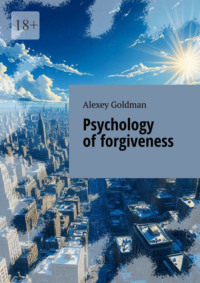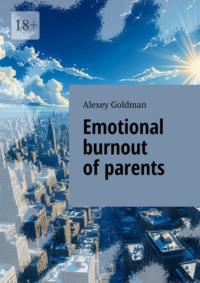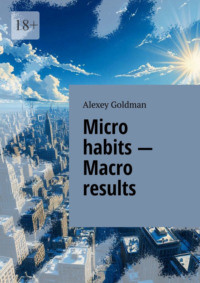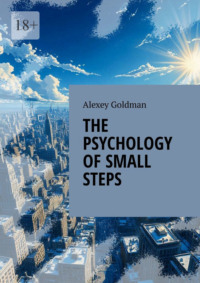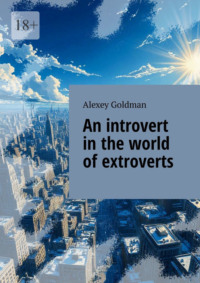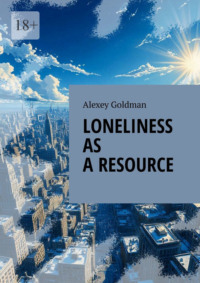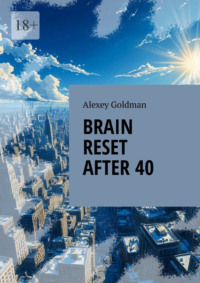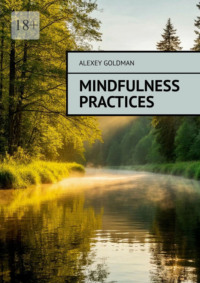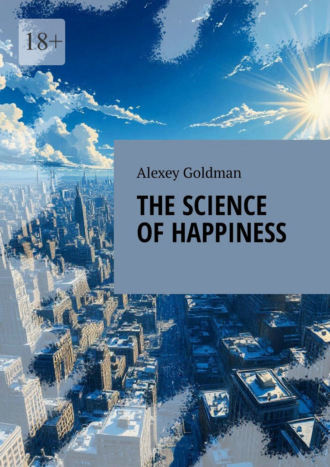
Полная версия
The science of happiness
Record and Reflect: Write down the new, reframed thought next to the old one. Pay attention to the sensations in your body and emotions. What changed after the «reboot»? You often feel:
A slight sense of liberation, a drop in tension (in shoulders, stomach, jaw).
The appearance of a small glimmer of hope.
A feeling of greater clarity and control.
Simply a reduction in the intensity of the negativity.
Fix this sensation. The goal of the practice is not to make thoughts exclusively rosy, but to make them less toxic, more accurate, and to give space for action and calm. This is a workout for your «muscle» of conscious and constructive thinking – the cornerstone of a happy mindset.
Chapter 3: The Secret Power of Connection (How Relationships Make Us Happier)
Imagine two scenarios:
Scenario A: You’ve achieved huge success – won a major contract, published a book, ran a marathon. You return to your luxurious, but empty, house. There’s no one to share the joy with. The euphoria quickly fades, replaced by a strange emptiness.
Scenario B: You had the toughest day – everything went wrong, your boss took out their anger on you, a project failed. You come home feeling drained. But you’re met with warm hugs from your partner, a sincere question: «How are you really doing?», and a willingness to just listen, without advice or judgment. You feel the heaviness gradually lift, and a point of support emerges within you.
What’s the difference? The presence of high-quality, close relationships. One of the largest and most significant studies in the history of psychology – the Harvard Study of Adult Development, started in 1938 and still ongoing (over 85 years!) – yielded an incredibly simple and powerful conclusion: The single most important thing for our happiness, health, and longevity is the quality of our close relationships. Not wealth, not fame, not hard work, but warm, reliable connections with other people. This isn’t just a pleasant bonus to life; it’s a fundamental biological need, like air, water, and food.
Why does connection = happiness and health? Let’s uncover the mechanisms:
A Buffer Against Stress (The Neuroscience of Care):
When we feel the support and understanding of a close person, our brain literally changes its chemistry. The level of stress hormones – cortisol and adrenaline (the very ones that, with chronic exposure, destroy immunity, raise blood pressure, and increase the risk of heart disease) – decreases.
Simultaneously, the level of oxytocin – the «cuddle hormone» of trust and attachment – rises. Oxytocin has a powerful calming effect, reduces anxiety, and enhances feelings of safety and connection. A good, deep conversation with a loved one is a natural and powerful «medicine» for stress.
Example: Imagine telling a friend about your failure. You see understanding, not judgment, in their eyes. They say, «That sounds really hard, I understand your frustration.» You feel the knot in your chest begin to loosen and your breathing even out. You are not alone in your pain. This is oxytocin in action.
A Source of Meaning and Belonging:
Humans are social beings. We evolutionarily need to feel that we belong to a group, that we matter to someone, that our life has value in the eyes of others. Quality relationships provide this feeling of «we,» the sensation that you are part of something bigger.
Caring for loved ones, contributing to their well-being, sharing joys and sorrows with them – all this fills our lives with a deep meaning that goes beyond personal ambitions and needs. «Being needed» is a powerful source of happiness.
Example: Helping an aging parent, supporting a friend in grief, joy in a child’s successes, overcoming difficulties together with a partner – these are all moments where we transcend our own «self» and experience the genuine value and meaning of existence.
A Mirror for Growth and Self-Knowledge:
Sincere, trusting relationships are a safe space where we can be real, with all our strengths and weaknesses. Through feedback from loved ones (if given with kindness!), we get to know ourselves better, our blind spots, our true needs.
Overcoming inevitable conflicts and misunderstandings in healthy relationships teaches us empathy, compromise, and communication – skills critically important for happiness both inside and out.
Example: Your partner gently points out that you often interrupt when you’re excited. Instead of getting defensive, you ponder («Do I really do that? Why?») and try to be more attentive. It’s not always easy, but it’s growth that makes you better and the relationship stronger.
What are «Quality» Relationships? (This isn’t about perfection!):
It’s not about the number of friends on social media or acquaintances at a party, but the depth and reliability of a few key connections. Quality relationships are when with a person you can:
Be Yourself (Authenticity): Not wear a mask of the «ideal,» «strong,» or «successful» person. Allow yourself to be vulnerable, tired, doubtful, imperfect. Without fear of judgment or rejection.
Share What’s Deep (Vulnerability & Trust): Talk not only about the weather and work, but also about your fears, dreams, failures, shame, and joys that touch your soul. Trust that you will be listened to and understood, not that the information will be used against you.
Feel Support and Care (Support): Know that in a difficult moment you have someone to turn to – not necessarily for a solution, but for presence, listening, a simple «I’m with you.» And feel that you can also be such a support for them.
Experience Mutual Understanding and Respect: Feel that your worldview and values (at least the key ones) align or are respectfully accepted. Feel that your boundaries (physical, emotional, time-related) are acknowledged and not violated.
Receive and Give (Reciprocity – within reason!): Relationships are a two-way street. It’s important to both receive support and be able (and want!) to give it. But this doesn’t mean a strict tally of «you owe me, I owe you.» It’s a natural flow of care and attention.
«Recharging» Through Communication: The Magic of Real Contact:
It’s not enough to just «be nearby.» Quality time requires presence and attention. When you truly listen and are listened to:
The pleasure centers in the brain are activated. This brings joy and satisfaction in itself.
The feeling of loneliness (which, research shows, is worse for health than smoking 15 cigarettes a day!) disappears.
Your sense of self-worth is strengthened: You are seen, heard, valued.
Shared narratives and memories are created, becoming the «glue» of your relationship.
Care Goes Both Ways:
Receiving support is vital. Don’t be shy to ask for help – it’s a sign of strength, not weakness.
Giving support and caring for others is an incredibly powerful source of happiness (more on that in the chapter on kindness!). By helping, we feel useful, connected to others, and distracted from our own problems. Altruism is selfish in the best sense of the word!
Why is this the MOST IMPORTANT ingredient? (Expanded Awareness):
Without strong, warm connections, even the most successful, healthy, and wealthy person feels an existential emptiness and loneliness. We are biologically wired for connection. Infants without contact and attachment do not survive physically. Adults without quality relationships «die» emotionally and often age faster physically. Investing in relationships is not a waste of time; it’s the most important investment in your own happiness, health, and longevity. It’s creating your «psychological safety net» – the network that will hold you up in any storm.
Try This Today (Practice «Deep Dive Conversation» – with details and nuances):
This practice is about quality of presence, not long hours. Choose one close person (partner, friend, relative, adult child) with whom you want to strengthen your connection.
Intention and Preparation:
Tell yourself: «For the next 15 minutes, I am dedicating my full attention to [Person’s Name]. I want to understand and feel what’s on their mind and in their heart.»
Конец ознакомительного фрагмента.
Текст предоставлен ООО «Литрес».
Прочитайте эту книгу целиком, купив полную легальную версию на Литрес.
Безопасно оплатить книгу можно банковской картой Visa, MasterCard, Maestro, со счета мобильного телефона, с платежного терминала, в салоне МТС или Связной, через PayPal, WebMoney, Яндекс.Деньги, QIWI Кошелек, бонусными картами или другим удобным Вам способом.


